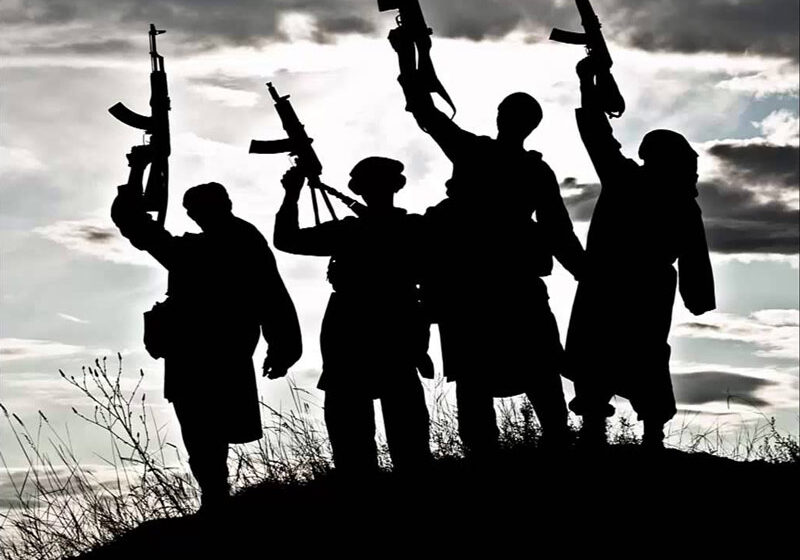Extremist ideologies: An urgent call for action

Extremist ideologies with deep roots can be degraded but not entirely eliminated
By Iqbal S. Hasnain
In a world grappling with the persistent threat of terrorism, it’s crucial to address the underlying ideologies that fuel these extremist movements. The recent attack by ISIS-Khorasan (ISIS-K) at a memorial service in Iran serves as a stark reminder that the global struggle against terrorism is far from over. This incident and many others like it are linked to the ideology of Wahhabism, an extremist belief system that has been identified as a primary source of global terrorism.
ISIS-K’s attack on the General Qassem Suleimani memorial service underscores the organization’s unwavering commitment to violence and sectarianism. They consider Iran, a prominent Shia power, as a prime target, despite Iran’s support for groups like Hamas. This highlights the deeply rooted sectarian agenda that drives such extremist groups, which is inextricably linked to the ideology of Wahhabism.
It’s not just ISIS-K; the ISIS ideology has taken root in various parts of the world, including Afghanistan, the Philippines, Pakistan, Nigeria, Mali, and Bangladesh. Furthermore, ISIS has a virtual presence, with faceless insurgents recruiting thousands in cyberspace. These groups often target Shia, Sufi-Sunni, and other religious minorities, further illustrating the dangerous spread of this ideology.
Wahhabism, the inspiration behind much of Islamic extremism, must be discredited through concerted global efforts, involving Muslims and followers of other faiths. While some may argue that ISIS has been physically weakened in regions like Mosul, Raqqa, and Baghuz, its ability to exploit ethnic and sectarian tensions in ungoverned territories remains a persistent threat.
Hasnain: Afghanistan: a country of million tragedies (August 19, 2021)
Former President Barack Obama’s declaration to “degrade and ultimately destroy ISIL” has yet to be fully realized after nineteen years. ISIS still maintains a presence in several unstable Muslim countries, including Libya, Somalia, Afghanistan, Pakistan, and Mali.
In the context of Israel’s ongoing conflict with Hamas, the insistence on ‘total victory’ raises concerns about the lasting impact of military campaigns. The United States’ experience in Afghanistan, where the Taliban remains a significant player despite two decades of war, serves as a cautionary tale.
Recognizing the root cause of much of this extremism, the European Parliament identified Wahhabism as the primary source of global terrorism in 2013. It’s imperative that U.S. administrations acknowledge this fact and understand that Wahhabism is a twisted interpretation of Islam that promotes violence, contrary to the religion’s true teachings of justice, compassion, and mercy.
Hasnain: No armor against fate: Biden’s doomed presidency (August 30, 2021)
It’s high time the world recognizes that the pervasive influence of jihadi terrorism is an offspring of Wahhabism, funded by petrodollars from Saudi Arabia. This ideology has not only fueled terrorism but has also been exploited to justify military interventions by neo-imperialist powers.
The global community, including both Western and Asian nations, must come to grips with the destructive perversion of faith represented by Wahhabism. The recent live coverage of the Gaza conflict highlights the tragic consequences of these ideologies.
Hasnain: Why are rich Arab nations turning their back on Syrian refugees? (September 12, 2015)
In conclusion, Hamas, like al-Qaeda and the Islamic State, is deeply rooted in extremist ideologies and can be degraded but not entirely eliminated. It may be in Israel’s best interest to consider negotiations with Hamas’s political wing to work towards coexistence while addressing the broader issue of extremism at its ideological roots.
(Iqbal S. Hasnain is a former Vice Chancellor of the University of Calicut, Kerala, India. His book “Fault Lines in the Faith: How the Events of 1979 Shaped the Islamic World,” was released last month.)
Read more columns by Iqbal S. Hasnain:
Emerging economies’ soaring coal consumption imperils global environmental security (July 31, 2023)
India, China endanger Hindu Kush-Himalayan-Karakoram glaciers (December 10, 2021)
Trump’s decision on Paris Agreement will affect research in low-carbon technologies (June 6, 2017)
Paris COP21: challenges galore for world leaders (November 29, 2015)
Hasnain: The melting glaciers of Himalaya and Alaska and the global climatic challenges (September 7, 2015)
